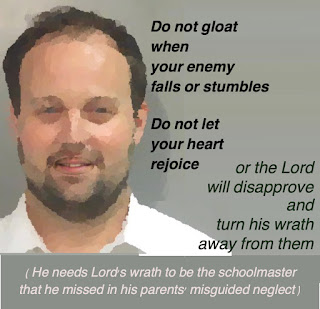In keeping with the adage of considering the source, I read the book from the perspective of a former Christian Reconstructionist who abandoned that position but remained an Evangelical. I spent a decade of my childbearing years as a wife in the Quiverfull Movement (QF), including four years as a church member who followed Bill Gothard's teachings. Eventually, I became a vocal critic from both Christian Counter-Cult and Thought Reform perspectives, and my presuppositional views about the nature of QF theology differ significantly from the author's own. While I was overwhelmed with the aftermath of QF in my own life and the lives of my loved ones who suffered so much, please note that the author's introduction to and experience with the sect differed profoundly from mine.
For the reader who seeks only to understand the mindset of QF mothers in good standing, the book offers a glimpse into the concerns and beliefs of those mothers. However, the former follower who experienced emotional/psychological abuse, domestic violence, a broken marriage, estrangement from family, ostracizing within their QF community, shunning for leaving QF, expulsion, educational neglect as a child, gender abuse, spiritual abuse, or pronouncement of their eternal damnation will find the book's assessment of QF difficult. For example, I found the descriptions of “Titus 2 encouragement” problematic. Perhaps the author's limited pool of model-citizen subjects lacked the painful experience of stress created by the milieu management practice, though QF trains followers to speak of it in glowing terms only as one of its sacred systems. Underachieving members, outliers within QF, and former members know well the policing and chatter of women peers concerning their compliance and punishment by elder enforcers who demand submission. (QF adapted the well-practiced, high demand mentoring system from prior waves of Shepherding/Discipleship in spiritually abusive Evangelicalism.)
Limitations of Ethnography or the Nature of the Subject?
My criticisms of the book may concern the limitations of ethnography for this particular religious group, given its convoluted hidden curriculum and broad demographic across different denominations. I was disappointed that the author did not include the battery of questions prepared for subjects in her dissertation which prevents the reader from understanding more about the research and the veracity of its focus. While much material in the book discusses the benefits of ethnography in a theoretical sense which seemed worthy of a separate book, I found it necessary to consult many other sources to ensure that I was fairly evaluating the work rather than the research modality. As someone experienced in academic research, I found these elements to pose an unfair burden to the general reader.
McGowin defines QF families as those who practice the intersection of three ideals: homeschooling, gender hierarchy, and pronatalism. These converging interests are not the distinctions that define the ideology as expressly QF. Evangelicals have historically and ubiquitously embraced the values of family, pronatalism (also a necessity for pioneering agrarian culture), the home education of children, the domesticity movement, along with those denominations that long pursued patriarchy. Christian Reconstruction became the catalyst that caused the much smaller subculture of QF to coalesce. I assert that the control mechanisms of manipulation and systems of control set QF followers apart from other Evangelicals as illustrated by personal testimony and decades of conflict which the book does not mention (e.g., ecclesial courts, lawsuits, exclusivism, Etc.).
The author notes her aversion to criticism of the QF belief system and thus rejects consideration of many critical assessments of QF in her disseration, qualifying different varieties of critics by assigning all to a single strawman category of misinformed people who denigrate QF adherents. (To the contrary, research from these neglected sources shows that people join high demand ideological sects like QF not because they are deficient in some way but because they are ethical, responsible, discerning and intelligent.)
While the ethnographic method may have prevented extensive exploration of critical sources, I'm disappointed that the author deems the disciplines that study high demand, spiritually abusive, or aberrant Christian organizations illegitimate, excluding their mention. The study ignores this literature from Christian counter-cult apologetics (a Protestant Christian discipline that evaluates theological orthodoxy/praxy of Bible-based religion), cult education organizations, and decades of peer-reviewed research by men like Paul Martin and Larry Pile (both of whom were former members of The Great Commission, a Bible-based sect that differed little from and shared “visionaries” with QF). References to A Matter of Basic Principles, the watershed Biblical critique of Gothard's program by Don Veinot and Ron Henzel (now in its second edition), and decades of their Midwest Christian Outreach critiques of Gothard and Vision Forum are also notably absent from the book. (If the ethnographic theological study design precluded citation of this material, a qualifying statement could have clarified that for the reader.)Critical Engagement
I share far more common ideas about QF with the author than disparagements which she elucidates in her personal summary. She uses the term "family blueprint" to describe QF's formulaic cookie-cutter preference for uniformity. I also found the Eclipse of the Church section very astute and well-reasoned. The section noting the pitfalls of"privatization" of the family leading to isolation points out how families' most vulnerable members may become predisposed to domestic violence. I'm grateful for the inclusion of these insights, as they provide balance which does speak to the subject of families.
The author concludes by stating, “Despite their lofty goals, however, the Quiverfull movement produces an idealization of the family that leads to social isolation, the eclipse of the church, and in some caes, the cover-up of sin.” While I agree, this statement is a weak assessment, failing to do proper justice to those who have suffered devastating harm while practicing the lifestyle. While "the map is not the territory” in any such survey, I believe the reader merited a more thorough, well-defined map concerning decades of practice and belief that go unmarked in the book and one from a broader theological Evangelical perspective.
I cannot get past the author's statement near the end of the work which declares that QF's “religious practice exposes important weaknesses in evangelical theology. [ . . .] My subject position leads me to contexualize Quiverfull within evangelicalism and offer observations on its continuity and discontinuity with what I understand to be American evangelical norms.”
Though from a different set of Evangelical roots within a smaller subset of Evangelicalism than the author, I arrive at a different conclusion. While perhaps intentionally vague because of the limitations of ethnography, I cannot determine if the author views QF as a fair exemplar or perhaps a microcosm of all Evangelicalism. I don't know whether she's aware that informed Evangelical Counter Cult apologists reject QF as a pagan belief system, even if she personally rejects them as unhelpful. Such a strong statement deserves a robustly defended thesis from a theological perspective, but the author offers what I found to be more personal generalizations about the culture to vet the statement. I wish the author had been more specific about her meaning and the rationales, though perhaps the generalizations were meant to be charitable.
May the varieties of our religious experiences concerning the Quiverfull Movement continue in ongoing discussion and through expanding research. As our One God and One Mediator saves us and brings us together into the knowledge of the truth as fellow Christians, may we all find the hope and healing we need. May we also endeavor to find that greater understanding and compassion for one another with God's help (1 Tim 2:1-7).




























